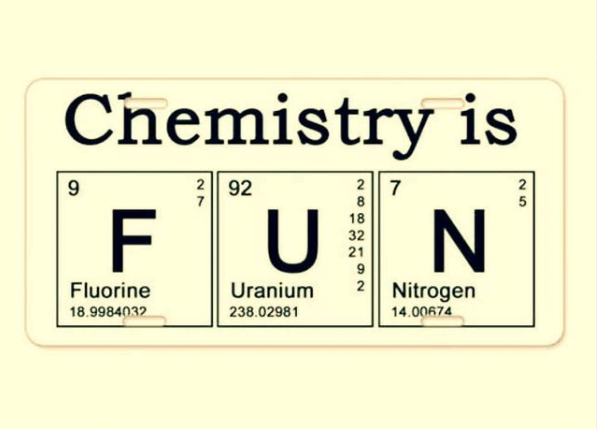Chemistry is the study of matter, including its composition, characteristics, and transformations. It’s a fundamental science that has been around for thousands of years and has significantly impacted our daily lives. From the food we eat to the medicines we take, from the materials we use to build our homes and cars to the fuels that power them, chemistry is an essential part of our world. In this article, I will explore some of the most fascinating and fun facts about chemistry that you need to know.
Facts About Chemistry
- Chemistry is derived from the Egyptian word “keme,” which means earth.
- Since it makes up around 75% of the universe’s mass, hydrogen is the most prevalent element.
- Water is a compound of two hydrogen atoms and one oxygen atom, which is essential for life.
- The smell of rain is caused by a chemical called “petrichor,” released when raindrops hit the ground.
- A diamond is the hardest natural substance on Earth, made entirely of carbon.
Chemical Reactions
Chemical reactions are fundamental to chemistry. They occur when two or more substances interact, forming new substances with different chemical properties. Chemical reactions are essential for life and have many practical applications, including producing medicines, food, and fuel.
History of Chemistry
Chemistry has a long and fascinating history. The ancient Egyptians, Greeks, and Chinese contributed significantly to the field. The famous alchemist, Jabir ibn Hayyan, also known as Geber, is often called the father of chemistry. In the 18th and 19th centuries, chemists made significant progress in understanding the properties of matter, and the development of the periodic table revolutionized the field.

Image Source Instagram @facts_about_chemistry
Periodic Table
The periodic table is an arrangement of numbers that lists chemical elements in order of increasing chemical and atomic complexity. So, it is a fundamental tool for chemists, providing a framework for understanding the properties of elements and predicting the behavior of chemical reactions. The periodic table continually evolves, with new elements discovered and added.
Organic Chemistry
Organic chemistry studies carbon-containing compounds, including those found in living organisms. Therefore, it is a broad and diverse field that includes studying everything from simple molecules like methane to complex biomolecules like proteins and DNA. Organic chemistry has many practical applications, including producing drugs, plastics, and synthetic materials.
Inorganic Chemistry
Inorganic chemistry is the study of non-carbon-containing compounds. It encompasses everything from metals and minerals to simple salts and gases. However, inorganic chemistry has many practical applications, including the development of catalysts for chemical reactions, the production of fertilizers, and the purification of water.
Analytical Chemistry
Analytical chemistry is the study of the composition and properties of matter. It involves the development of methods and techniques for detecting and quantifying chemical compounds, including everything from environmental pollutants to trace elements in biological samples. Therefore, analytical chemistry has many practical applications, including forensic science, environmental monitoring, and drug development.
Physical Facts About Chemistry
Physical chemistry is the study of the physical properties of matter and the underlying chemical processes that govern those properties. It encompasses everything from thermodynamics and kinetics to quantum mechanics and spectroscopy. Therefore, physical chemistry has many practical applications, including the development of new materials, the optimization of chemical reactions, and the understanding of biological processes.
Facts About Chemistry In Everyday Life
Chemistry is a part of our everyday lives. From the food we eat to the clothes we wear, the products we use, and the medicines we take, chemistry plays a crucial role. Moreover, chemistry has helped us improve our lives in countless ways, from developing life-saving drugs to producing sustainable materials and energy sources.
Read More: Facts About Biology | Facts Of Beyond The Visible World
Future Of Chemistry
The future of chemistry looks very promising. As technology advances and our understanding of chemistry improves, we can develop new materials, processes, and products to revolutionize our lives. Additionally, here are some examples of how chemistry is shaping the future.
- Renewable Energy: So, chemistry is critical in developing renewable energy sources like solar and wind power. Chemists are working to develop new materials that are more efficient at converting sunlight into electricity and to improve the performance of batteries and other energy storage devices.
- Sustainable Materials: Chemists are working to develop new materials that are more sustainable and environmentally friendly. Therefore, biodegradable plastics and materials from renewable resources such as plant fibers.
- Drug Development: Chemistry is essential to the development of new drugs and treatments for diseases. However, chemists are working to develop new drugs that are more effective and have fewer side effects.
- Nanotechnology: Atomic and molecular-level manipulation of matter is a component of nanotechnology. Therefore, it has many potential applications, including developing new materials, devices, and disease therapies.
Famous Chemists
Chemistry has produced many famous and influential scientists throughout history. Therefore, here are some notable points.
- Antoine Lavoisier: Lavoisier is often called the father of modern chemistry. He was a French chemist who contributed significantly to understanding combustion and oxygen’s role in chemical reactions.
- Dmitri Mendeleev: Mendeleev is best known for developing the periodic table of elements. He organized the elements based on their atomic structure and chemical properties, revolutionizing the field of chemistry.
- Marie Curie: Curie was a Polish-French physicist and chemist who significantly contributed to studying radioactivity. She was the first woman to win a Nobel Prize and two Nobel Prizes in different fields.
Nobel Prize In Chemistry
The Nobel Prize in Chemistry is one of the most prestigious scientific awards. It is awarded annually to scientists who have made significant contributions to the field of chemistry. Therefore, some notable recipients of the Nobel Prize in Chemistry include Marie Curie, Linus Pauling, and Dorothy Crowfoot Hodgkin.

Image Source Instagram @facts_about_chemistry
Facts About Chemistry In Industries
Chemistry is essential to many industries, including pharmaceuticals, agriculture, and manufacturing. Some points of how chemistry is used in various industries.
- Pharmaceuticals: Chemistry is essential to the development of new drugs and treatments for diseases. So, chemists work to develop new molecules that can target specific disease processes and minimize side effects.
- Agriculture: Therefore, chemistry is critical to producing fertilizers and pesticides, which help farmers grow more food with less land and fewer resources.
- Manufacturing: Chemistry is essential to producing many everyday products, including plastics, textiles, and electronics.
Facts About Chemistry In Popular Culture
Chemistry has played a significant role in popular culture, from television shows like Breaking Bad to movies like The Imitation Game. However, Chemistry has also inspired many popular books and songs, such as Tom Lehrer’s “The Elements” and Roald Dahl’s “George’s Marvellous Medicine.”










